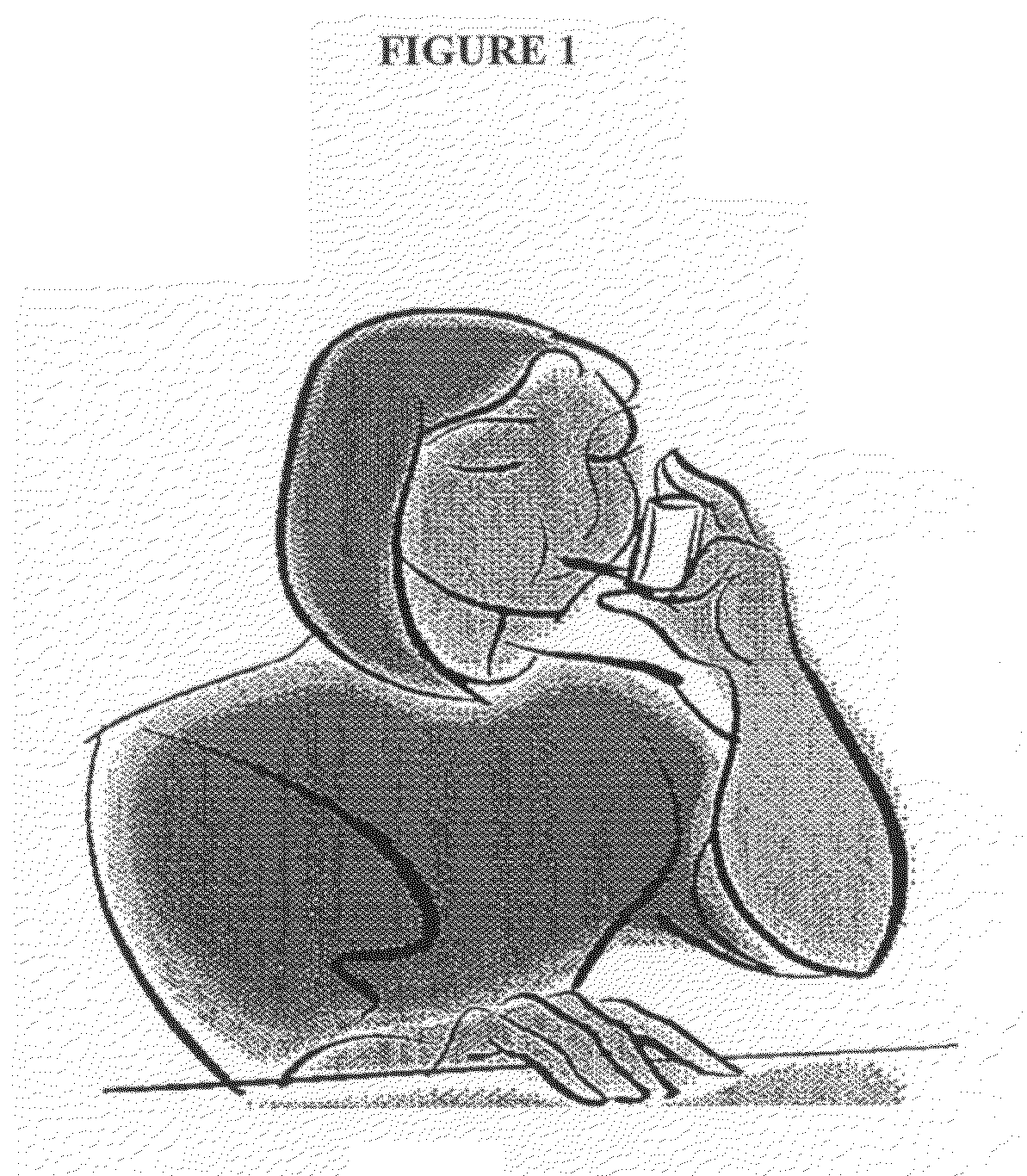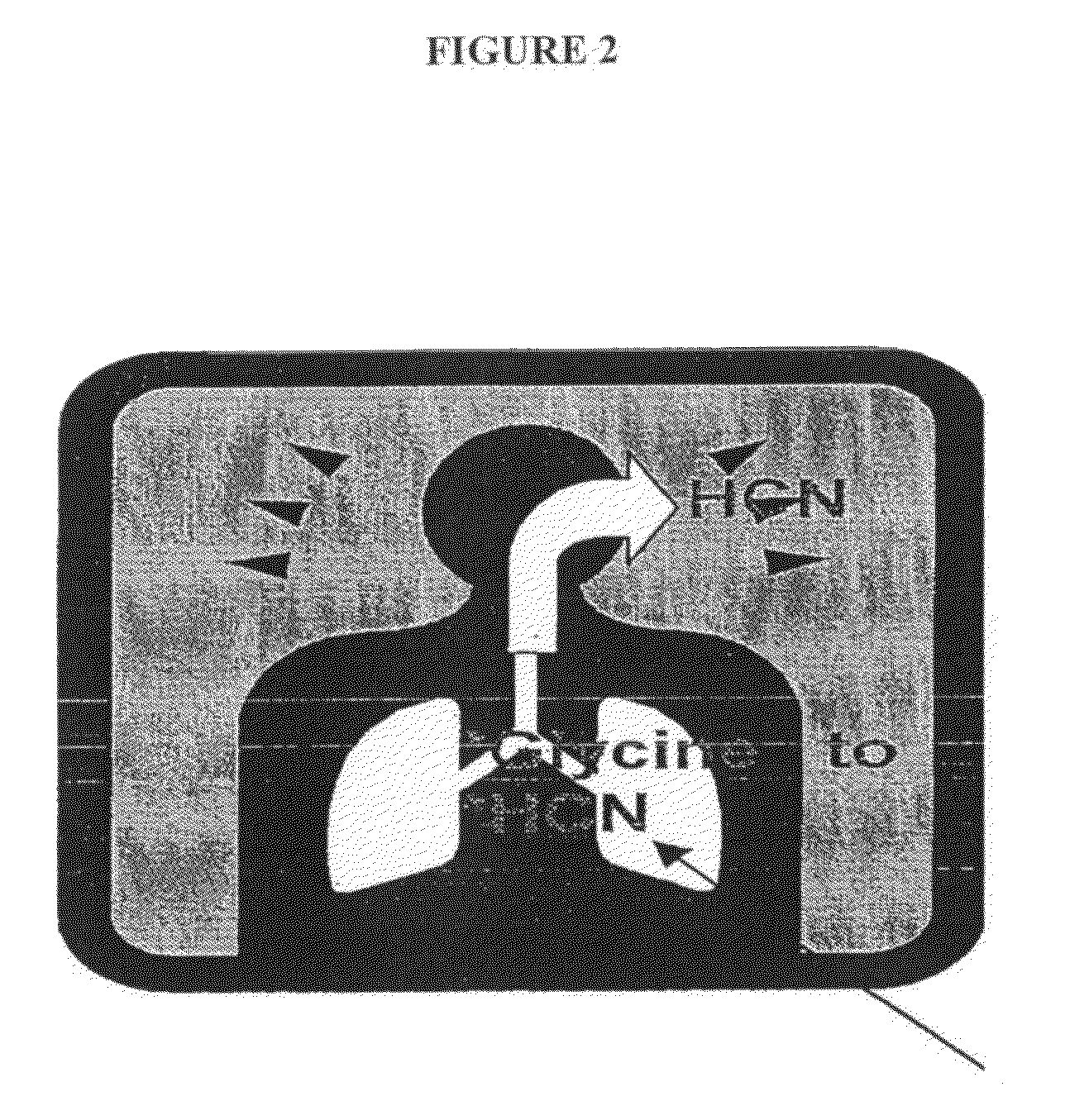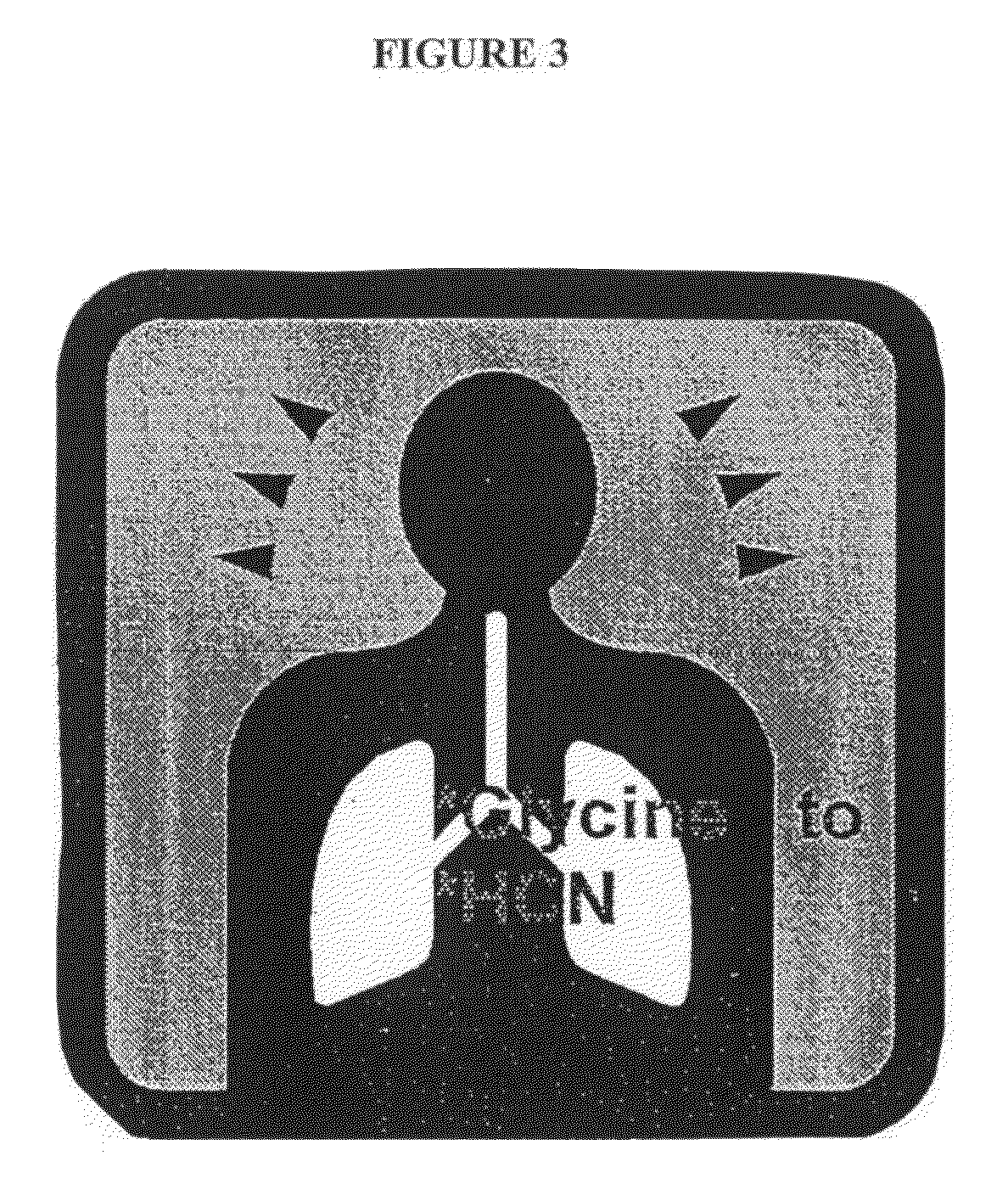Diagnosis of P. aeruginosa infection in the lungs of patients
a technology for detecting p. aeruginosa infection and lungs, which is applied in the direction of instruments, diagnostic recording/measuring, aerosol delivery, etc., can solve the problems of increasing inflammation and lung damage, no current method to rapidly determine, and cf patients, etc., and achieves the effects of not cost-effective, laborious, and easy to administer
- Summary
- Abstract
- Description
- Claims
- Application Information
AI Technical Summary
Benefits of technology
Problems solved by technology
Method used
Image
Examples
example 1
Inhaled Administration of Labeled Tracer
[0106]A. A first embodiment is to administer 13C-urea by inhalation (such as a dry powder inhaler as described above) in an amount of 0.1 to 10 mg, and the ratio of 13CO2 to 12CO2 in exhaled breath sample 1 to 60 minutes afterwards (to allow for conversion) is determined by mass spectrometry or laser spectroscopy. The ratio of 13CO2 to 12CO2 is compared to that of a breath sample obtained before compound inhalation, and an increase in this ratio is indicative of P. aeruginosa infection.
[0107]B. A second embodiment relates to replace the use of urea with the use of 15N-glycine as in the example A above, with analysis of the amount of HCN (labeled with 15N) compared to HCN in a sample prior to glycine administration in an exhaled breath sample 1 to 60 minutes after administration is determined by mass spectrometry or laser spectroscopy. The ratio of 15N to 14N is compared to that of a breath sample obtained before glycine inhalation, and an incr...
example 2
Oral Administration of Labeled Tracer
1) Oral Administration of Labeled Tracer
[0111]A.) One approach is to administer 13C-urea by in an oral dosage in an amount of about 0.1 to 100 mg, and the ratio of 13CO2 to 12CO2 in exhaled breath sample 1 to 180 minutes (also within the range of about 15-30 minutes to 60 minutes) after administration is determined by mass spectrometry or laser spectroscopy. The ratio of 13CO2 to 12CO2 is compared to that of a breath sample obtained before compound administration, and an increase in this ratio is indicative of P. aeruginosa infection. It may be desirable to preclude the potential for H. pylori interference with this assay by either enterically coating the urea capsule / tablet so that labeled urea does not come into contact with H. pylori and / or administration of known inhibitors of H. pylori urease such as bismuth salts, as otherwise described herein.
[0112]B) Another approach is to replace use of urea with the use of 15N-glycine with analysis of t...
PUM
| Property | Measurement | Unit |
|---|---|---|
| mass | aaaaa | aaaaa |
| time | aaaaa | aaaaa |
| time | aaaaa | aaaaa |
Abstract
Description
Claims
Application Information
 Login to View More
Login to View More - R&D
- Intellectual Property
- Life Sciences
- Materials
- Tech Scout
- Unparalleled Data Quality
- Higher Quality Content
- 60% Fewer Hallucinations
Browse by: Latest US Patents, China's latest patents, Technical Efficacy Thesaurus, Application Domain, Technology Topic, Popular Technical Reports.
© 2025 PatSnap. All rights reserved.Legal|Privacy policy|Modern Slavery Act Transparency Statement|Sitemap|About US| Contact US: help@patsnap.com



